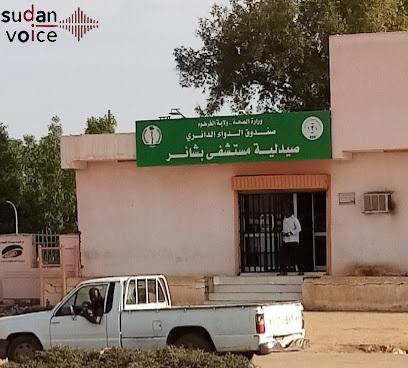Khartoum, December 8(Darfur24)The World Health Organization WHO has warned of the worsening humanitarian crisis in Sudan amid continued fighting, mass displacement, and disease outbreaks, as the war that has been ongoing for nearly 8 months has killed at least 12,260 people and injured more than 33,000 people, according to the Sudanese Ministry of Health.
From the city of Port Sudan, the acting representative of the World Health Organization in Sudan, Dr. Mohamed Tawfiq Mashal, spoke to reporters in Geneva today, Friday, noting that many people have lost their lives due to the breakdown of the health system and the lack of access to urgent surgeries, life-saving medicines and services.
Sudan is facing the largest displacement crisis in the world, with approximately 6.8 million people fleeing their homes in search of safety within Sudan or in neighboring countries, increasing their exposure to disease, malnutrition, gender-based violence, and severe mental health problems.
Cholera, measles, and dengue fever
Dr. Muhammad Tawfiq Mishal warned of the worsening disease outbreak. Within one month, cholera has spread from 3 to 9 states – including major cities and conflict areas, with more than 5,400 suspected and confirmed cases and 170 deaths.
Eleven states reported more than 4,500 suspected cases of measles and 104 deaths.
Fourteen states also reported more than 6,000 dengue cases and 56 deaths.
Insecurity and bureaucratic obstacles continue to limit humanitarian access and the movement of supplies in many places in Sudan.
The World Health Organization expressed particular concern about the situation in Darfur, where high levels of violence and inability to access basic needs continue to force people to flee elsewhere or to neighboring Chad. Many hospitals are reported to be inaccessible, and insecurity prevents the safe delivery of humanitarian aid.
Life-saving services
Dr. Mohamed Tawfiq Mishal said that the World Health Organization remains on the ground working side by side with Sudanese health authorities and health partners to provide life-saving services to the people of Sudan.
The organization also continues to use all available means to distribute supplies to where they are most needed throughout Sudan, and the organization is currently preparing to send medical and diagnostic supplies to Darfur and Kordofan as part of a larger United Nations convoy.
In cooperation with UNICEF and its health partners, WHO supported the oral cholera vaccination campaign in Gedaref and Gezira states, reaching more than 2.2 million people – 98 per cent of the target number.
The organization’s teams are deployed in cholera-affected areas to monitor water quality, distribute water purification tablets, and engage communities in cholera prevention.

